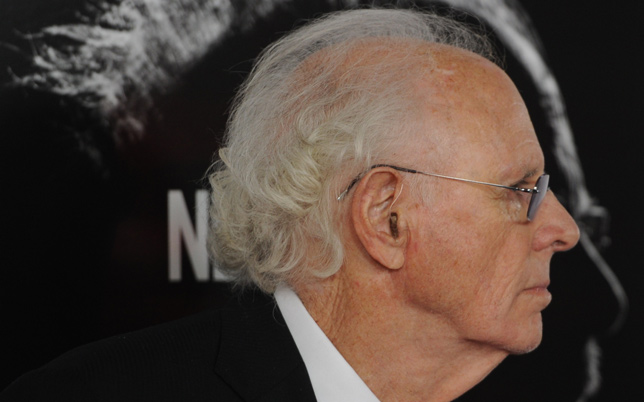
- Golden Globe Awards
Bruce Dern (Nebraska)
It has been a good year for seasoned actors. Dame Judi Dench has given us, at age 79, another heartbreaking performance as a mother in search of her son in Philomena. 77-year-old Robert Redford is playing the most demanding role of his career as a shipwrecked sailor fighting for his life in All Is Lost. And then there is Bruce Dern, who’s Redford’s age. Dern worked steadily and found his dream role late in life – Woody Grant, the ultimate curmudgeon in Alexander Payne’s pitch-black comedy-drama Nebraska.
Once you’ve seen him, it’s hard to imagine anyone else than Dern in the role. He may not always talk much but Woody is front and center in almost every scene of the film. We first lay eyes on him as he is walking down a lonely stretch of highway on the outskirts of Billings, Montana, his hands deep in his pockets and his collar turned up against the cold. Woody is a man on a mission: he must make it to Lincoln, Nebraska, to collect a million dollars he has won in the sweepstakes, or so he thinks. That Lincoln is some 900 miles away doesn’t seem to bother him. A million bucks is a million bucks.
With an unruly shock of white, wispy hair and squinty eyes behind large spectacles, it’s obvious that Dern was born to play this old fool. His Woody is as stubborn as he is delusional, a life-long drunk on the brink of Alzheimer’s who is a pain in the neck to everyone around him including his wife, Kate, wonderfully portrayed by June Squibb (she is, like Dern, nominated for a Golden Globe). And it includes his son, David (Will Forte), who nevertheless agrees to drive his father to Lincoln even it means to burst his bubble. What follows is a road trip full of stark Midwestern landscapes and colorful characters, all in glorious black-and-white, which fits the film like a glove. Just like Bruce Dern.
“I’ve been in some really good movies”, the actor says, “but I’ve never been in what I consider a movie that worked before we ever shot it. When I read the script I saw the opportunity of a lifetime.” He instantly knew he was Woody, and he campaigned for the role. Still, it took ten years before Nebraska reached the screen, partly because Alexander Payne was busy doing other projects, and partly because he thought his lead actor didn’t have the right age yet. Whatever the reason, it was worth the wait.
Not that he hasn’t done great work before. At 77, Bruce Dern can look back at a long and illustrious career that began with an uncredited part in Elia Kazan’s Wild River (1960). After spending the first half of the ‘60s doing television, his big screen credits include playing a member of a motorcycle gang in The Wild Angels (1966), a film that started his collaboration with legendary B-movie king Roger Corman. “I began at the Actor’s Studio but I graduated from the University of Corman,” he says with only a hint of irony.
Dern hit his stride in the ‘70s, a decade that many people feel was the greatest in American moviemaking. His credits include Silent Running (1971), The King of Marvin Gardens (1972), Black Sunday (1976), and The Driver (1978). His role as a troubled Marine in Coming Home (1978) earned him an Academy Award nomination as well as a Golden Globe nomination (the Globes voters also nominated him in 1974 for portraying Tom Buchanan in The Great Gatsby).
For someone who has always maintained that he’s not in the business to win awards, Bruce Dern has racked up quite a few so far. And with Nebraska, he is sure to add to that number. Already he has won the Best Actor prize at the Cannes Film Festival last year. Or, as he would put it, “Woody won it for me.”

